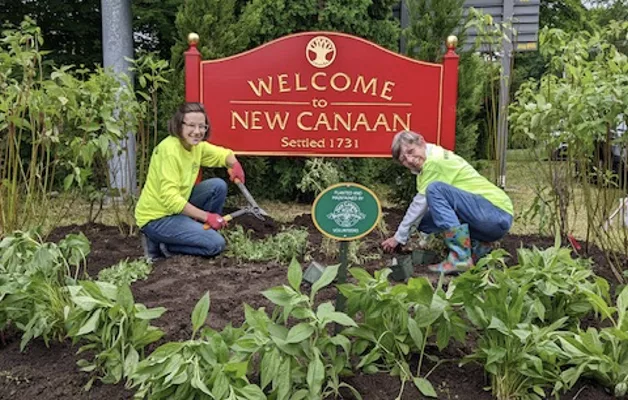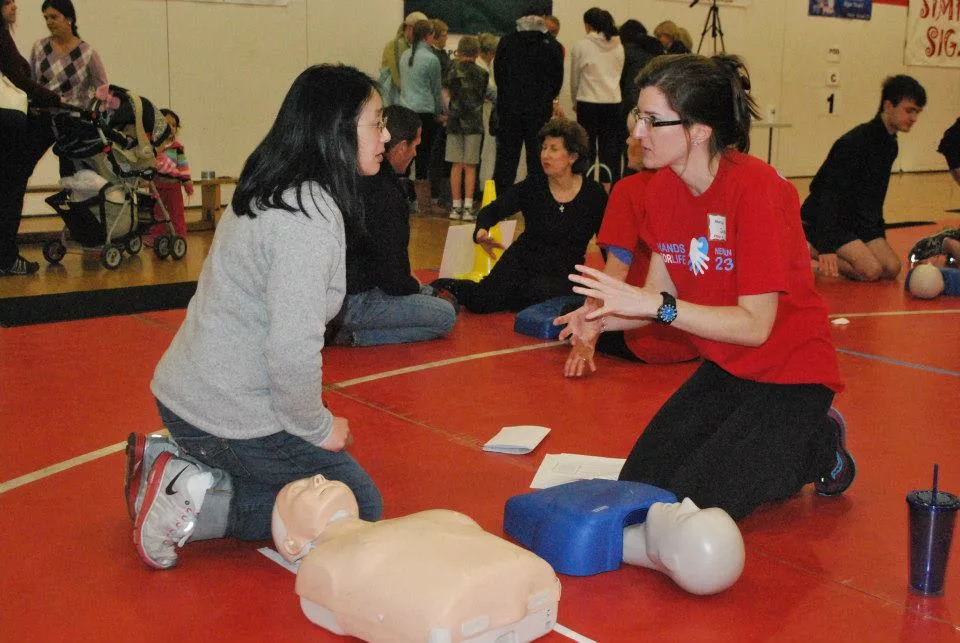
By Cordelia Webb
Community spirit and proactive healthcare are taking center stage in New Canaan as the New Canaan YMCA holds Hands for Life New Canaan 2024.
This initiative, formed through the collaboration of New Canaan YMCA, New Canaan EMS, and New Canaan CERT, is designed to equip residents with crucial skills in Hands-Only CPR and Automated External Defibrillator (AED) operation. The overall goal is to train as many community members as possible, fostering a widespread capability to respond to cardiac emergencies effectively.
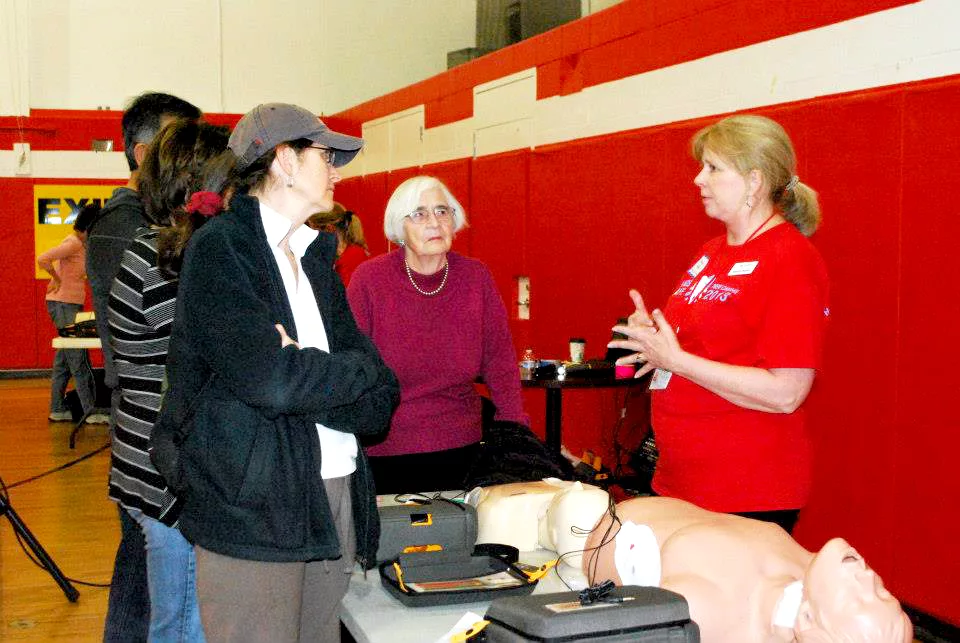
Scheduled for this Sunday, April 28th, from 10 AM to 4 PM, this event has been created with accessibility and efficiency in mind. No prior registration is required, and each training session spans only 20 to 25 minutes. These brief yet intensive sessions are structured to maximize learning without encroaching significantly on participants’ daily schedules.
This commitment to community readiness is deeply rooted in the successful history of the program. The inaugural Hands for Life event in 2013 was a resounding success, drawing an enthusiastic crowd of approximately 900 participants. The event not only provided vital skills but also instilled a sense of empowerment among the residents.
“We wanted to help get information to people so that they know that these tools that are more and more present these days are actually very user-friendly and that people should feel confident and comfortable enough to use them,” noted Margaret Riley, YMCA Executive Director.
The statistical backdrop underscores the critical need for such training. Annually, “over 360,000 people in the United States suffer cardiac arrest,” explained Amy Kennedy, New Canaan EMS Chief. Immediate application of CPR can dramatically enhance a victim’s chance of survival, potentially doubling or tripling their survival rates.
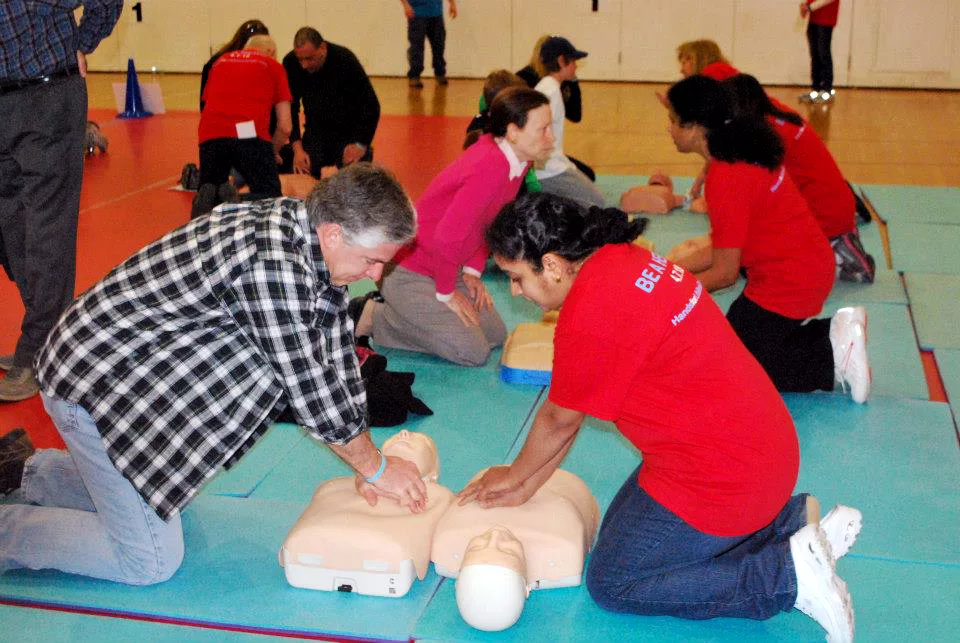
Reflecting on the impact of the 2013 event, Kristina Barrett, one of the organizers, shared moving anecdotes about participants who later applied their skills in real-life scenarios. “A few weeks later that an attendee had actually used the skills that they had learned,” recalled Barrett, “They were in the city and a stranger had collapsed and she called 911, and she began compressions. She said that because of the event, she felt so much more confident in knowing what to do to help this person and not feeling helpless.”
This year, organizers are keen to build on past successes and extend the reach of this life saving knowledge. The introduction of modern, user-friendly AEDs is a key focus. These devices now come equipped with voice commands that guide the user through the process, ensuring that even those with no prior experience can operate them effectively and without hesitation.
The collaborative effort between the YMCA, EMS, and CERT is a cornerstone of the event’s success. “It’s the dream team. It’s the perfect group of organizations to come together and deliver this. In terms of our ability to source volunteers with expertise and certifications, those who are not only certified to administer, but to train others in CPR, the mannequins that we need for people to practice compressions and the training AEDs that are necessary” remarked Riley.
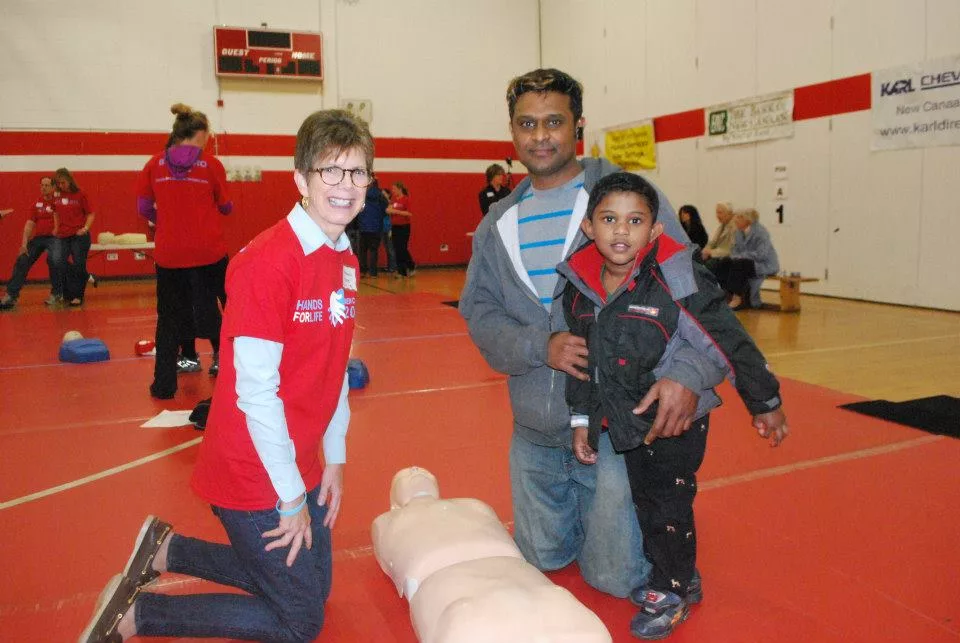
Inclusivity is a hallmark of the Hands for Life initiative. The event is open to all, regardless of age or background. While effective compression requires a certain level of physical strength, typically achievable by those 12 years and older, the event encourages participation of all age groups. Younger attendees can benefit from learning the basics, such as the importance of calling 911. The YMCA’s family-friendly environment ensures that participants need not worry about childcare, making it easy for families to attend.
For those who have never participated in CPR training and might feel apprehensive about their ability to learn, the organizers offer reassurance. The training is designed to be straightforward and engaging, with clear instructions. “Understanding how to quickly recognize an emergency, determine that a person is unresponsive and in need of assistance, and calling 9-1-1 are the first steps,” remarked Kennedy, “ We will review all of this, and teach the correct hand placement and mechanics of compressing the chest hard and fast, to help a person in cardiac arrest.”

